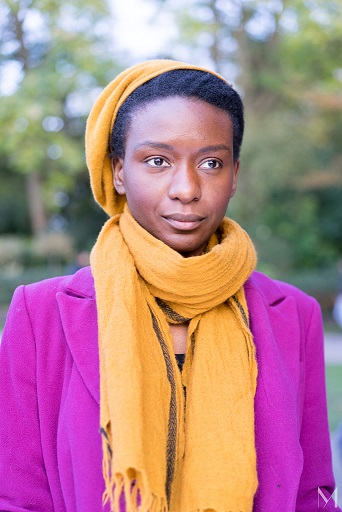1. Dissociation: Ecology is not about taking care of Nature but taking care of ourselves because humans are part of Nature, not a separate entity. Some species are already extinct, and we could be the next one. Nature includes other minerals, flora, and fauna that will survive us. Humans are not a superior entity on a mission to save the planet but natural species on a mission to rescue ourselves. We can fix the mistakes we have made, and it starts with embracing our biological identity and place in the ecosystem. Every time we dissociate ourselves from Nature, we end up with flawed equations. When we must make a choice, we weigh up inaccurate visions of ecological interests against factual consumerist ones. It creates irrational situations where we would tolerate more lasting damages to Nature, including feeding our bodies polluted air, food from spoiled soil, and poisoned water, but protect our short-lived materialism. Once we put ourselves back on the side of Nature and fix the equation, the question is: how much do we value our natural identity and well-being against economic considerations? It is time to make it personal. Are your employees aware of who they are?
2. Technologisation: Our enthusiasm for technology and innovation mislead us to think that artificial intelligence and laboratories can solve the climate change emergency. However, they are useful but do not exempt us from our human responsibility to stop creating that mess from the beginning. We got it wrong if we create robots to clean our ocean but do not stop using plastics for good upstream. There is no point in replacing Nature with ersatz from laboratories if they spoil human bodies and the planet with more artificiality and chemicals. We still lose our way if we recycle without questioning our economic model. People are not consumers but purposeful human beings. Therefore, we should break that vicious cycle of pointless production for unfulfilling consumption that characterizes our broken consumer economy. Instead, we should welcome an Economy of Purpose where purposeful companies help their clients reach their unique potential. Innovation should support and scale up human intelligence, talents, creativity, wisdom, and engagement in our communities and society, not trying to replace them. Are your employees working in a company that innovate to make a real and lasting difference in people’s lives and the planet?
3. Expertism: The rise of sustainability has put Science and Academics at the forefront of public institutions. Yet, in the corporate world, many different profiles, from engineers to entrepreneurs, are switching toward careers in sustainability. That is because it is a shared concern and business. It inspires every human being beyond job title and professional/educational background. Even if they have a sustainability department, companies should not prevent other employees and departments from doing their extra bit for the community, society and ecology. On a bigger scale, having a climate emergency should not stop us from looking for solutions beyond those pushed by academics, scientists, and technologists. It is a top-down but also bottom-up effort, and free initiatives from the mass should be encouraged. Countries are falling behind the SDGs targets, and companies often fail to implement ESG goals when they are decided by the top or external consultants and forced upon people. There is resistance from those who saw their opinions and participation in the collective intelligence excluded. Sustainability is a co-creative work. Listening to, including and valuing insights from employees and citizens is fundamental and nurturing their self-confidence in their contribution is critical for better engagement. Thought leadership can come from anyone, but does your company help your employees trust and express their talent?
4. Spiritual exclusion: No matter how hard we try to fix our external world, change must happen first in people’s inner world. Humans have a body, a mind, but also a spirit. Therefore, we are also spiritual beings. The word spiritual belongs to each of us, not any belief system. The spirit ignites the mind, and the mind activates the body. One way the spirit drives the mind is with a purpose. Reconnecting people to a purpose nurtures and supports their mental health. Then, their mind can positively shape how they see, understand, and build the external world. As a life coach, I see the current climate emergency as a consequence of our relationships with ourselves and others. When we know ourselves and our purpose, we have healthier relationships with others. And we genuinely care about the environment allowing each of us to evolve, thrive, and reach our potential. From this personal development perspective, the focus is on the deepest human roots of the issues that can shift mindset, energize, and strengthen actions contributing toward our shared challenges. Are your employees aware of their own purpose?
5. Disempowerment. The previous narratives lead to the same results: the disengagement of employees. Since the sustainability topic is disconnected from their persona, and others tell them how to think and what to do, it disables their own relatedness, understanding, ideas, and motivation. They only comply with what everyone else is doing and keep waiting for solutions coming from others. The problem is that if we all think and act the same way, we end up with similar solutions and deadlocks, like now. Yet, since we are all different, we can all bring alternative solutions to the table. They will not compete but complete each other. It only takes people to know, value and trusts their potential. Personal development and human empowerment will be critical to reaching our shared goals. We must invite people to reconnect with their unique identity and potential. We must ease people’s inner peace and strength so they can overcome challenges slowing their potential. And we must support people in trusting their talents and creativity, so they can use their potential to co-create in your company, but also our community, society, and planet. Personal development is global and sustainable development. Are your employees aware and in touch with their true potential?









